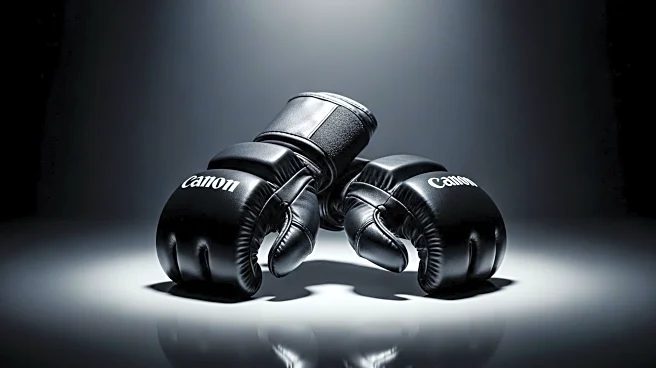What's Happening?
Khalil Rountree, a prominent UFC light heavyweight fighter, has announced a break from fighting until 2026 after his recent defeat to Jiri Prochazka. The fight took place on October 5, 2025, at UFC 320 in Las Vegas, where Rountree was knocked out in the third round. This loss follows his previous victory against Jamahal Hill in June 2025 at UFC on ABC 8, where he won by unanimous decision. Rountree's current record stands at 14 wins, 7 losses, and 1 no contest. In a social media post, Rountree expressed his determination to learn from the defeat and return stronger, thanking his coaches, family, friends, and supporters for their unwavering support.
Why It's Important?
Rountree's decision to take a hiatus is significant for the UFC light heavyweight division, as he is a key competitor with a substantial following. His absence may impact the dynamics of upcoming fights and rankings within the division. For fans and the UFC organization, Rountree's break could mean a shift in focus to other fighters, potentially altering matchups and promotional strategies. Additionally, Rountree's commitment to returning stronger highlights the mental and physical challenges athletes face after a loss, emphasizing the importance of resilience and recovery in professional sports.
What's Next?
Rountree's announcement suggests he will focus on personal growth and recovery over the next year. The UFC may need to adjust its event planning and fighter matchups in the light heavyweight division during his absence. Fans and analysts will likely monitor Rountree's progress and anticipate his return in 2026, which could bring renewed excitement and competition to the division. Meanwhile, other fighters may seize the opportunity to rise in rankings and establish themselves as contenders in Rountree's absence.
Beyond the Headlines
Rountree's decision to step back from fighting underscores the broader issue of athlete well-being and the pressures of professional sports. His public acknowledgment of the emotional impact of losses and the need for time to heal reflects a growing trend among athletes to prioritize mental health. This development may encourage other fighters to openly address similar challenges, fostering a more supportive environment within the sports community.








